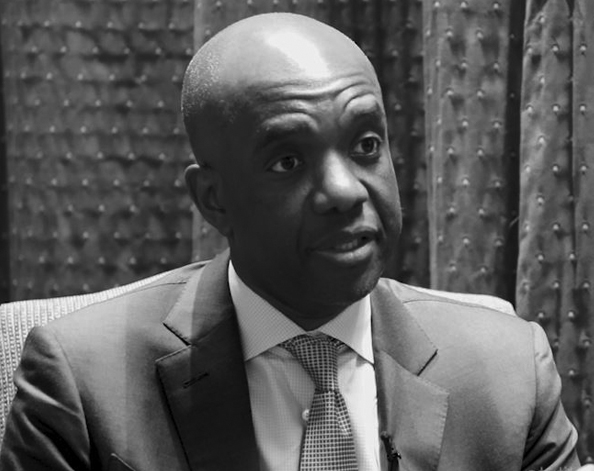Receive Focus insights straight to your inbox
Watch: The future of work
Martin Ford, a renowned futurist, has argued that artificial intelligence (AI) will mean the future is one of massive structural unemployment. In his book, The Lights in the Tunnel, he foresees a US economy which, by the end of the century, will have an unemployment rate of 75% as a result of advances in robotics and AI.
That's one way to look at it. Another is that automation could create more jobs than it displaces, and bring about new careers that we can't even imagine.
According to James Manyika, McKinsey's leading thinker on the digital future, past waves of technological change have resulted in job losses, but net job gains have been far greater.
What's different about the Fourth Industrial Revolution is that never before has technology replaced cognitive skills. That makes the issue of the future of work a compelling question.

Some occupations decline, but many others actually grow and rise; and quite often, many that grow and rise are the ones we could never imagine.
AI will fuel a productivity and growth surge
McKinsey has been assigning some of its best minds to thinking about the issue and supports the view that AI promises a new growth surge. Manyika’s view is that there will be "more jobs, but of a different type".
Historical experience is that "some occupations decline, but many others actually grow and rise; and quite often, many that grow and rise are the ones we could never imagine", says Manyika.
And it isn't just highly skilled jobs that will be created. In fact, says Manyika, low-skilled jobs that are hard to automate will thrive. "Jobs grow because the economy is growing, and many of those jobs will be highly skilled. But there will also be a high demand for jobs that are hard to automate, many of which are low-skilled jobs."
"Jobs grow because the economy is growing, and many of those jobs will be highly skilled. But there will also be a high demand for jobs that are hard to automate, many of which are low-skilled jobs."
Manyika believes that it is difficult to automate a job that involves physical work in an unstructured environment; for instance, gardening, hairdressing and care work.
McKinsey doesn't see it as a case of low-skilled jobs losing out in the rise of exponential technology. "Rather than think primarily in terms of high skill versus low skill, it's worth thinking primarily about the following: What is the content of the work? Is it made up of activities that are easy to automate or not, regardless of the skill involved?"
In fact, Manyika points out, many highly skilled jobs that are easy to automate, such as accounting and data analysis, are most at risk of losing ground to machine learning.
An explosion of new careers
From Airbnb agents to bitcoin traders, every decade in most economies, developed and developing, has "about 10% of occupations that did not exist in the previous decade", Manyika points out.
In the US, the 'other' category into which the US Bureau of Labor Statistics initially places these new occupations, has consistently been the fastest-growing of any classification for 50 years, he says. This is the case in most economies.
Side hustles and the rise of the gig economy
Analytics firm Gallup estimates that more than a third (36%) of the US workforce is plying their trade in the gig economy.
Driven by the proliferation of labour-sharing platforms like Uber and fiverr, the gig economy is defined as a series of freelance or part-time work (gigs) for people who want more flexibility or have a side business to their permanent job. But there are also people who are forced into gigging through necessity.
Although the gig economy has been criticised for not providing the benefits associated with permanent work, it does give people opportunity, Manyika argues.

Mechanisation could cause all of the unskilled labour to move over to the Global North, where the capital resides. When that happens, who is going to employ our young people?
Will South Africa be left behind?
At a recent Investec event, Lindiwe Mazibuko, co-founder and executive director of the Apolitical Academy – a nonprofit organisation established to train and mentor young people entering public service – said one of the main things keeping her awake at night was the issue of youth unemployment in SA, especially in the wake of the Fourth Industrial Revolution.
"We have a hugely undereducated workforce," she said. And, in a world of AI, and machine and algorithmic learning, "what kind of work environment have they been educated for?" she asked.
Mazibuko disagrees with many African leaders who believe that increased wages and living standards in East Asia will result in a lot of unskilled labour making its way to Africa. "My sense is that mechanisation could change that and cause all of the unskilled labour to move over to the Global North, where the capital resides. When that happens, who is going to employ our young people?
For his part, Manyika is offering several solutions to put SA on a digital path. It all comes down to creating bigger data flows into and out of the country.
The corporate sector is naturally connected to the global economy, but in SA, this sector is relatively concentrated, says Manyika. What's missing are the key ingredients to interconnectivity – "a vibrant small and medium-sized business sector" and globally connected citizens.
"In many other developing countries, 'micro-nationals', who are sourcing and supplying goods and services internationally, are driving the growth of those cross-border data flows," says Manyika.
On an individual level, he concludes, a diaspora community can drive global connectivity, along with the "ability to access digital platforms, so that individuals can consume digital content".
About the author

Lenyaro Sello
Digital content specialist
Lenyaro is a key member of Investec's Global Content team, based in Johannesburg, who focuses on relevant and topical issues for internal and external audiences including clients. She is a well-travelled multi-skilled multimedia journalist who previously held roles within eNews Channel Africa (eNCA) and Eyewitness News (EWN).
About the author

Ingrid Booth
Lead digital content producer
Ingrid Booth is a consumer magazine journalist who made the successful transition to corporate PR and back into digital publishing. As part of Investec's Brand Centre digital content team, her role entails coordinating and producing multi-media content from across the Group for Investec's publishing platform, Focus.




